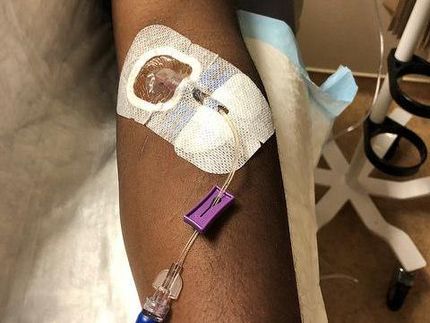Crucell Announces Start of Rabies Antibody Product Clinical Trial
Advertisement
Crucell N.V. announced that the rabies monoclonal antibody product it is currently developing has entered a Phase I clinical study in the United States. Crucell has developed a human monoclonal antibody product, a combination of two monoclonal antibodies for the post-exposure prophylaxis (PEP) of rabies, using its MAbstract® and PER.C6® technology. The pre-clinical evaluation of the antibody product was performed in collaboration with the Rabies Program of the Centers for Disease Control and Prevention (CDC) in Atlanta.
The Crucell-funded US clinical trial will be a randomized, double-blind, placebo controlled study in 60 healthy volunteers that will test the antibody product alone in a dose escalation study as well as in combination with a rabies vaccine. The main parameters under investigation will be safety, tolerability and (rabies virus) neutralizing activity.
Other news from the department research and development
Most read news
More news from our other portals
See the theme worlds for related content
Topic world Antibodies
Antibodies are specialized molecules of our immune system that can specifically recognize and neutralize pathogens or foreign substances. Antibody research in biotech and pharma has recognized this natural defense potential and is working intensively to make it therapeutically useful. From monoclonal antibodies used against cancer or autoimmune diseases to antibody-drug conjugates that specifically transport drugs to disease cells - the possibilities are enormous

Topic world Antibodies
Antibodies are specialized molecules of our immune system that can specifically recognize and neutralize pathogens or foreign substances. Antibody research in biotech and pharma has recognized this natural defense potential and is working intensively to make it therapeutically useful. From monoclonal antibodies used against cancer or autoimmune diseases to antibody-drug conjugates that specifically transport drugs to disease cells - the possibilities are enormous



























































